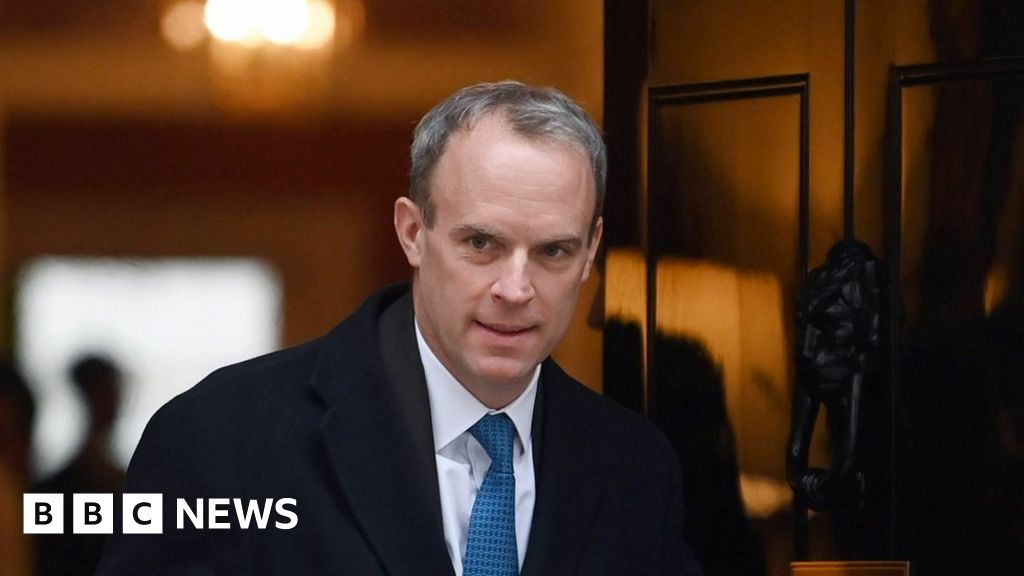This video can not be played
To play this video you need to enable JavaScript in your browser.
Dominic Raab dismissed repeated warnings about his behaviour, a retired senior civil servant who worked with him in the Foreign Office has said.
Lord McDonald described his former boss as a “tough taskmaster” whose methods did not help him achieve his aims.
He told the BBC he raised this with Mr Raab more than once but he “disputed” it and was unwilling to listen.
The former deputy PM, who resigned on Friday after a bullying inquiry, apologised if he upset anyone.
The inquiry found he was “intimidating” and “aggressive” towards officials, but Mr Raab said his behaviour was not bullying, and that almost all of the complaints against him were dismissed.
It looked at eight formal complaints about Mr Raab’s behaviour during his previous stints as justice secretary, foreign secretary and Brexit secretary.
Senior lawyer Adam Tolley KC, who led the inquiry, concluded Mr Raab’s conduct involved “an abuse or misuse of power”, and that he “acted in a manner which was intimidating” and “persistently aggressive” towards officials.
Lord McDonald, who worked as Mr Raab’s permanent secretary in the Foreign Office, told BBC Radio 4’s Today Programme: “I witnessed a tough taskmaster. I witnessed a minister who knew what he wanted to do.
“Frankly, I witnessed somebody whose methods did not help him achieve what he wanted to do and that I raised with him more than once.”
Asked if Mr Raab had listened, he replied: “No, he disputed it, he disputed he characterisation.”
Lord McDonald said he had not used the word bullying to Mr Raab, partly because things had not reached that stage at the time.
“I was trying to get my boss to see how his behaviour was making his professional life more difficult. I was trying to help him get the best out of his team and I felt saying bullying would have been too aggressive,” he said.
Lord McDonald was not at the Foreign Office at the time of the incidents which were complained about and upheld by the inquiry.
After he resigned, Mr Raab said a “very small minority of very activist civil servants” were effectively trying to block reforms they did not like, related to areas including Brexit, prisoner parole and human rights.
“That’s not on. That’s not democratic,” the MP for Esher and Walton said.
But Lord McDonald denied there was any civil service activism, passive aggression or a separate civil service agenda.
He added: “I saw no evidence of a small group of activists trying to undermine a minister. The issue is a minister’s behaviour.”
The FDA union, which represents civil servants, has accused Mr Raab of peddling “dangerous conspiracy theories that undermine the impartiality and integrity of the civil service” to “deflect from an independent investigation’s criticism of his conduct”.
But Conservative peer Lord Marland said Mr Raab’s resignation was “almost a conspiracy by the civil service”.
Speaking to the BBC’s Newsnight, he said it was “a very black day for all employers” because a “dangerous precedent has been set” [on the issue of workplace bullying] that would “send shudders through all employers in the country”.
This video can not be played
To play this video you need to enable JavaScript in your browser.
Related Topics
-
-
16 hours ago
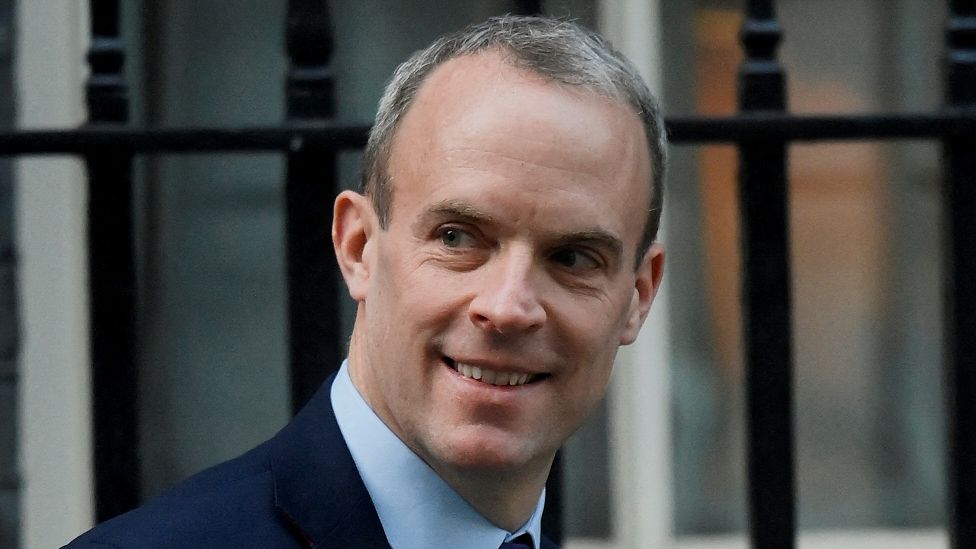
-
-
-
21 hours ago
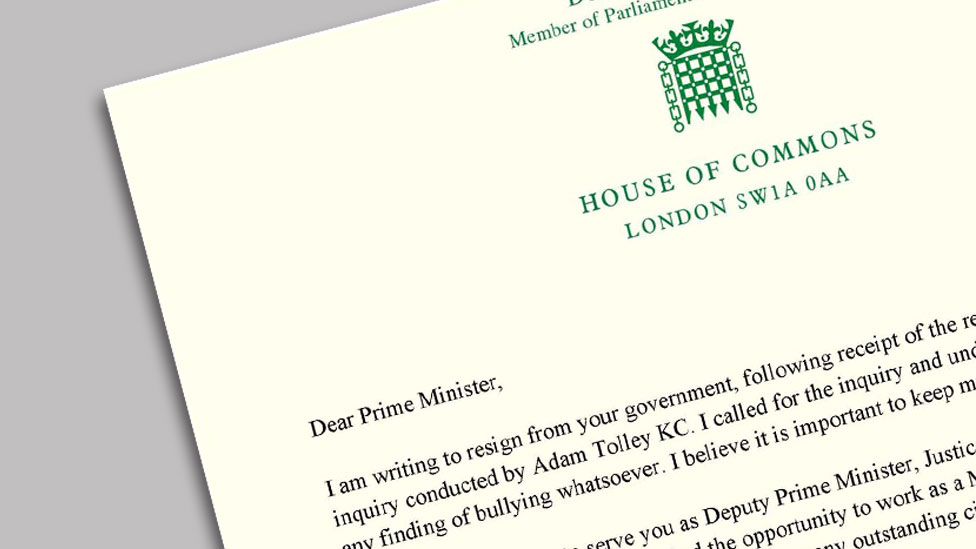
-
-
-
15 hours ago
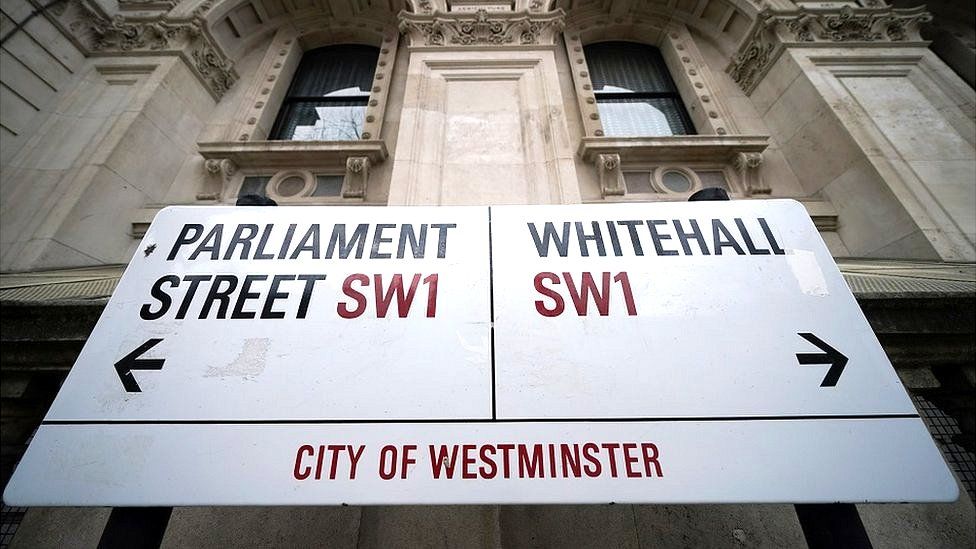
-
-
-
20 hours ago
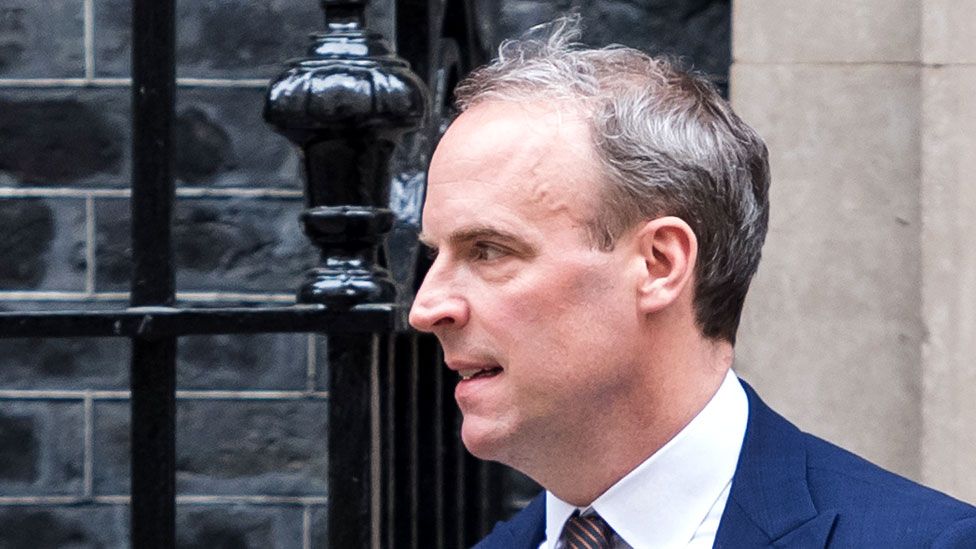
-
